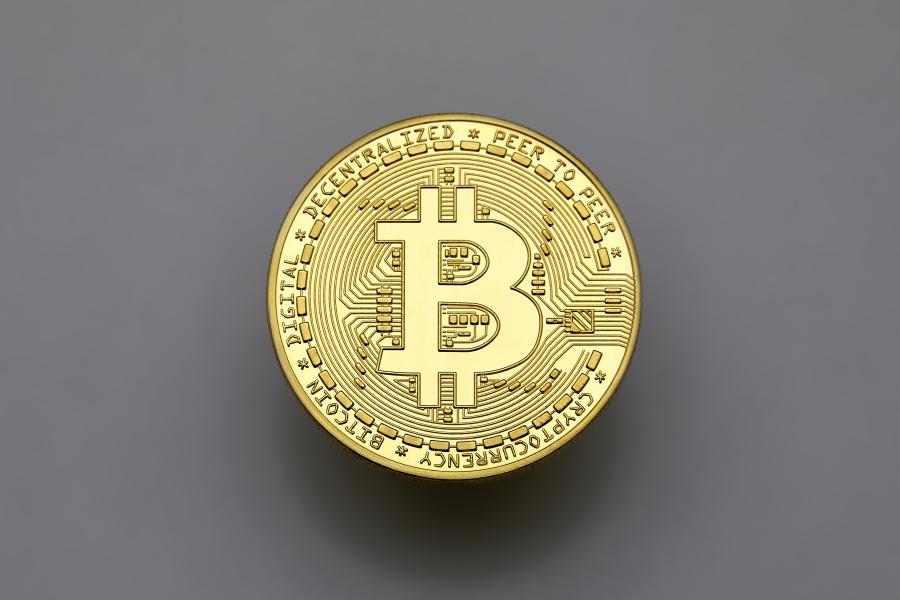To be continued: SEC pushes back at Coinbase
This week, our blockchain experts assessed the following topics:
- To be continued: SEC pushes back at Coinbase
- Battle of the crypto billionaires: Winklevoss versus Silbert
- News from the latest BIS survey on CBDCs
- The Bitcoin ETF race intensifies
Our bi-weekly Crypto Industry Report provides you with valuable information on the global crypto industry - picked and analysed by our blockchain experts.
To be continued: SEC pushes back at Coinbase
On July 7, the SEC responded to Coinbase’s motion requesting the court to dismiss the lawsuit the U.S. regulator had filed against it. Coinbase, in the 177-page motion it filed nearly two weeks ago, stated that the SEC had no jurisdiction to prosecute it. The exchange also argued that the regulator approved its IPO in 2021 without classifying any of the cryptocurrencies on its platform as securities or needing it to register with the regulator. In addition, Coinbase, in its counterattack, quoted a 2021 statement from Gary Gensler, the SEC’s Chair, saying only the U.S. Congress had the authority to regulate the cryptocurrency sector. Therefore, this leaves the SEC with no jurisdiction to sue it even if the allegations against it are genuine, according to Coinbase.
In its response, the SEC claims the crypto exchange was aware that it was contravening the country’s securities laws, which could pertain to its operations even before it was sued. Additionally, the regulator observed that Coinbase had publicly informed its shareholders that the assets on its exchange could be considered securities.
About a month ago, the SEC filed a lawsuit against Coinbase over claims that it was operating as an unregistered broker, clearing agency, and securities exchange. The legal suit came a day after the regulator sued Binance, another crypto exchange accused of operating an unregistered brokerage.
The SEC has been receiving heat over the past few weeks on what is seen as a witch hunt against crypto firms in the U.S. Lawmakers have even gone as far as introducing a bill to have the SEC chair removed for abusing his power.
Battle of the crypto billionaires: Winklevoss versus Silbert
On July 7, Gemini, a US-based cryptocurrency exchange firm, filed a lawsuit at the New York County Supreme Court against Digital Currency Group (DCG) – Genesis’ parent company – alongside Barry Silbert, DCG’s CEO. Gemini, which is owned by the Winklevoss twins — Cameron and Tyler Winklevoss — is accusing the US-based crypto firm and its CEO of fraud and deception.
The lawsuit comes after months of a long-standing public feud between the two firms after a collapsed lending venture. In February 2021, Gemini partnered with Genesis to enable its customers to earn an annual percentage yield of up to 7.4% on their deposits via a service known as Earn. The service would see Gemini users lend out their coins and, in return, earn a yield using Genesis’ infrastructure.
However, after nearly two years of Earn being operational, Genesis filed for bankruptcy in January 2023 following the effects of the collapse of the crypto hedge fund Three Arrows Capital (3AC) and cryptocurrency exchange platform FTX. The bankruptcy filing happened a few days before the U.S. Securities and Exchange Commission (SEC) sued the firm. The move to file for bankruptcy by Genesis was preceded by the halting of the Earn service in November 2022, which led to the freezing of customer funds.
As a major creditor in the ongoing bankruptcy case filed by Genesis, Gemini offered to put up $100 million towards Earn’s asset recovery efforts. This money will help partly pay back the 232,000 Earn customers owed over $1.1 billion in assets. In addition, DCG owes Genesis, its subsidiary, more than $1.65 billion and has defaulted on agreed payments.
In the recently filed lawsuit, Gemini wants to recover losses and damages incurred directly from the false, incomplete, and misleading representations by both DCG and Silbert. The lawsuit also claims that in October 2022, Silbert reached out to one of the Gemini founders, assuring them that it would only be a matter of time before their troubles were resolved. In addition, Gemini claims that Silbert knew the troubles facing Genesis were deeply rooted and couldn’t be resolved quickly.
Gemini filed the lawsuit a few days after Cameron, one of Gemini’s co-founders, shared an open letter via his Twitter handle to Silbert extending a final offer for the restructuring of the DCG loan. He warned Genesis and Silbert of a potential legal lawsuit if the company didn’t accept the offer. Neither Silbert nor DCG responded, prompting Cameron to invite Silbert to a Twitter Space to discuss the proposal a day later. With no response, Gemini went ahead to file the lawsuit against DCG and Silbert.
As it stands, Genesis has yet to strike a deal with any of its creditors on how to restructure its debt which currently stands at over $3 billion, even though it had planned to do so in May of this year. The lawsuit will be interesting to follow, considering that the SEC sued both companies in January of this year over the Earn product.
News from the latest BIS survey on CBDCs
The Bank for International Settlements (BIS), a Switzerland-based international institution that 63 different central banks own, has published the results of a survey carried out end of last year on central bank digital currencies (CBDCs) and cryptocurrencies.
Eighty-six central banks participated in the survey, whose goal was to collect information on central banks' plans and views on CBDCs. Based on the survey responses, 93% of central banks are involved in CBDC work, with work on retail CBDCs being more advanced than wholesale CBDCs. The paper also established that nine wholesale and 15 retail CBDCs could be in circulation by 2030.
The paper further stated that most of the central banks examined see the latent value in having both a fast payment system (FPS) and a retail CBDC, as the latter provides financial access to both the unbanked population and a wider array of financial institutions. Moreover, offline payments and programmability were cited as features that may not be present in an FPS.
CBDCs are also considered a geopolitical policy tool that might dethrone the dollar, allowing for a multi-currency society where no one currency is supreme. Nonetheless, CBDCs could be used as a tool against a government’s own citizens if the codes allowed a central authority to perform functions such as freezing funds. This potential problem was discovered by a blockchain developer that reverse-engineered the source code of Brazil’s pilot CBDC. The developer detected functions in the code that would enable a central body to freeze or unfreeze accounts, alter balances, move money, and create or burn Digital Real.
In other news, the IMF has stated that tax systems need updating before the use of cryptocurrencies becomes widespread. The international body also shared a new paper on how governments can tackle crypto-related tax issues while the use of cryptocurrencies is still limited.
The Bitcoin ETF race intensifies
The ETF race has seemingly intensified after the SEC responded to some of the Bitcoin ETF applications stating they were inadequate and needed to be revised. Following this announcement, BlackRock worked with Nasdaq to refile its Bitcoin ETF to include Coinbase as the market surveillance partner. Fidelity also got Cboe to refile its application after the SEC rejected the initial one. While SEC chairman Gensler was recently asked about Coinbase being the prime exchange in the ETF filings in a webinar, he did not directly comment but mentioned that crypto exchanges in the U.S. still operate conflicting services and thus have limited risk monitoring.
As BlackRock awaits a response from the SEC regarding its resubmitted application, its CEO, Larry Fink, has come out very bullish on crypto and BTC. Fink has called Bitcoin an international asset and digital gold, contrary to his 2017 statement saying Bitcoin was an “index of money laundering.”
Connected to this ETF topic is the Grayscale Bitcoin Trust (GBTC), whose discount to net asset value (NAV) has continued to narrow after BlackRock submitted its spot Bitcoin ETF. In early July, the GBTC discount to NAV dropped as low as 26%, the lowest level recorded since May 2022. Investors believe that should a Bitcoin ETF be approved, the GBTC product will finally be transformed from being a trust only into a proper ETF, which means the discount would all of a sudden close.
Share post

Related Posts

BlackRock fever: The ETF filing spree and institutional appetite
BlackRock filed for a Bitcoin ETF with the SEC, inspiring similar applications from firms like WisdomTree, Invesco, and Fidelity, and boosting Bitcoin's value. Traditional finance institutions such as Fidelity and Nasdaq are showing increased interest in crypto, with moves towards exchange and custody services. The defunct crypto exchange FTX, under new CEO John Ray III, is planning a potential revival after recovering significant assets. Meanwhile, the IMF is developing a global CBDC platform for cross-border transactions and DAI, a major stablecoin, is diversifying its backing from USDC to include real-world assets.

SWIFT explores blockchain interoperability
SWIFT has partnered with Chainlink to experiment with leveraging its infrastructure for transferring tokenized value across blockchain networks. The trials will address interoperability, regulatory challenges, and operational drawbacks for financial institutions in a blockchain environment. Chainlink will provide connectivity between private and public blockchains. SWIFT's findings will be published later this year.

China wants an Internet 3.0, while Hong Kong gears up for crypto trading launch
China is striving for advancement in Internet 3.0 technologies, with Beijing's white paper outlining plans to invest in the development of the metaverse and Web3 tech such as non-fungible tokens, but not cryptocurrencies due to the country's previous ban. Meanwhile, Hong Kong is launching its new crypto trading regulations, allowing retail investors to participate from June 1, 2023, with exchanges like Huobi Hong Kong beginning to offer spot trading to retail and institutional clients. Furthermore, the Cybersecurity and Technology Crime Bureau of the Hong Kong Police Force is launching a metaverse platform, 'CyberDefender', to educate the public about potential threats and crime prevention in the metaverse.

BRC-20: Innovating on Bitcoin is the new cool
A new Bitcoin “token standard” called BRC-20 is the hottest thing right now in the crypto space. It was introduced in March 2023 by a pseudonymous person called Domo. Bitcoin Request for Comment 20 (BRC-20) is an experiment that brings fungible tokens to the Bitcoin blockchain using the Ordinals protocol. Ordinals rely on ordinal theory, enabling the identification and tracking of individual satoshis within Bitcoin's existing supply, while also allowing them to be inscribed (associated) with data. Through this technique, satoshis (sats) are given ordinal numbers starting with zero. Anyone can add a script file to a sat to create and transfer a BRC-20 token on the Bitcoin blockchain. BRC-20 tokens are created using three functions: deploy, mint, and transfer.

US versus EU: Giants fighting for regulatory clarity
It is official now: The European Parliament voted overwhelmingly in favour of Markets in Crypto Assets (MiCA), legislation that will guide the crypto sector in all 27 European Union member states. 517 parliament members voted for it, while 38 voted against it. This approval makes Europe the first continent with comprehensive rules for cryptocurrencies. Also, it means that all EU member states will have unified crypto regulations. So, if a crypto business is approved in one EU member country, it could easily expand operations to another member state. The EU’s milestone was lauded by Binance as well as Kraken and Coinbase.

Ethereum: Another milestone reached with the Shanghai Update
On April 12, 2023, Ethereum successfully executed the planned Shanghai update also known as Shapella. The upgrade allows validators to unstake their staked ETH and withdraw their rewards, as well as staked ether if chosen. Now that another level of uncertainty has waned for the biggest smart contract blockchain, this new feature could attract more investors to stake their ether.

CFTC versus Binance:
Clash of the titans
The world’s leading crypto exchange by volume, Binance, alongside its CEO, Changpeng Zhao, and ex-Chief Compliance Officer, Samuel Lim, are being sued by the US Commodity Futures Trading Commission (CFTC).

Stablecoin USDC briefly lost its
peg. What do we learn from this?
One of the top stablecoins by market cap, USD Coin (USDC), de-pegged briefly from the US dollar on March 11 following the collapse of Silicon Valley Bank (SVB). Circle, the stablecoin’s issuer, held $3.3 billion in USDC reserves with the bank, which caused panic as investors rushed to withdraw their funds, assuming USDC could implode because of insufficient backing. However, the amount represented less than 8% of the stablecoin’s reserves.

Ethereum Shanghai upgrade pushed to April: Will there be too much selling pressure?
Ethereum stakers have been eagerly awaiting the Shanghai upgrade, which will enable them to withdraw their staked ether. Stakers’ funds have been locked since Ethereum introduced the proof-of-stake Beacon Chain in December 2020. The upgrade was originally slated to take place sometime in March but was pushed by about two weeks to April during a recent execution layer meeting.

Are regulators trying to make up for it by cracking down?
Following the infamous events of 2022, US regulators are turning up the heat on crypto services and products in 2023. One of the services they have targeted recently is custodial crypto staking, a process whereby customers have a financial service provider lock up their coins with a blockchain protocol over a certain period of time in exchange for rewards. This comes as no surprise since the SEC’s chairman, Gary Gensler, previously said that crypto staking looks very similar to lending. US crypto exchanges that offer this service are, therefore, in the SEC’s line of fire.